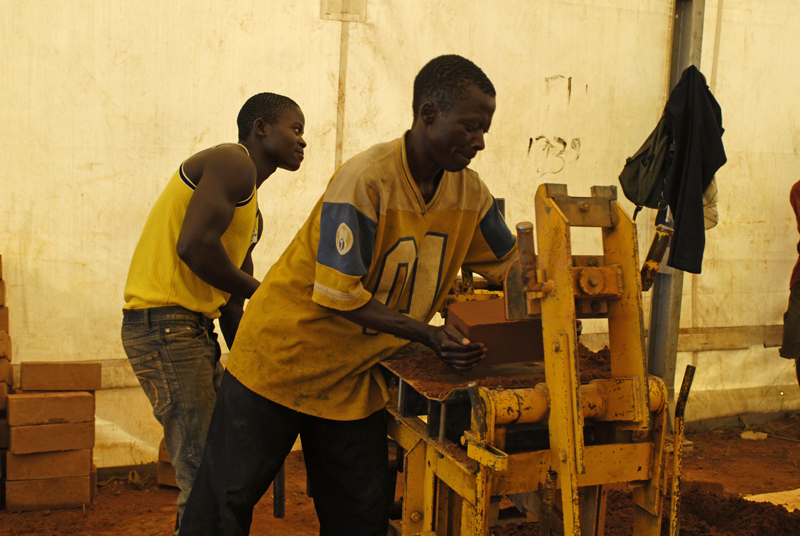RETFOP: Boosting technical and vocational education and training in Angola

Objective
-
€21.4mBUDGET
-
18/09/2017PROJECT START
-
80,5 monthsDURATION
Boosting technical and vocational education and training in Angola
The RETFOP project aims to upgrade vocational education in Angola, in order to provide the country with a skilled workforce to meet the needs for its economic development and reduce youth unemployment.
Expertise France’s assistance aims to strengthen:
• The vocational training steering and coordination mechanisms, with increased private sector participation
• The capacities of schools to provide quality training, tailored to the needs of the labour market
• The vocational guidance and integration mechanisms for graduates.
Through this project, Expertise France supports the Ministry of Public Administration, Labour and Social Security (MAPTSS) and more especially the National Institute for Employment and Vocational Training (INEFOP). The project is implemented in 6 provinces (Huambo, Uige, Moxico, Benguela et Huila), with a coordination team based in Luanda.
Officially launched in September 2018, this project is financed by the European Union as part of the 11th European Development Funds and implemented by Expertise France and the Institut Camões.
For futher reading: Developing human capital in Angola: launch of the RETFOP project
Three main issues
The RETFOP project aims to address the following issues:
• The lack of public/private institutional dialogue in the definition and management of training policies and private sector involvement in vocational training systems
• The need to develop a theoretical training base for trainers of trainers at national level and adapt training content to labour market needs
• The need to strengthen systems for intermediation towards employment and systems for transition towards the labour market (including self-employment)
Building the management capacities of public institutions at the central and local level and strengthening coordination between them and the private sector
The project has defined and established a public/private consultation structure at the national and provincial level, for which the implementing decree was published in September 2023.
132 public employment training centres for employment centres and provincial services have been equipped with IT and connectivity equipment, under the supervision of the National Institute for Employment and Professional Training (INEFOP).
Improving the quality and relevance of training provision (technical and vocational education and training)
• 32 trainers of trainers have received pre-service training on the identification of training needs and teaching skills, in partnership with France Education Internationale
• 125 trainers from 37 training centres/training units have received in-service training for five courses (formwork, masonry, welding, renewable energy/electricity, plumbing)
• A training manual and training modules have been developed for the implementation of curricular internships and the participation of business professionals in the training
Facilitating and supporting the transition of women and men graduates towards the labour market
In terms of employment, the project has reviewed the range of services of the employment centres and the business repository of the officers in these centres. This range of services has been deployed in seven pilot centres, and training has been organised at national level. In addition, the project activities have enabled a review of the approaches and support tools of vocational integration units in technical schools, as well as training in the new methodology deployed in the 92 existing units.
In the field of entrepreneurship, INEFOP’s dedicated training module (seven handbooks) and the training for the promotion of entrepreneurship for the teams of employment centres have been reviewed. In September 2022, a system for incubation and access to micro-entrepreneurship benefited 229 young people under a public-private partnership.
 Stay informed about RETFOP's news
Stay informed about RETFOP's news
Follow the project on social media:





